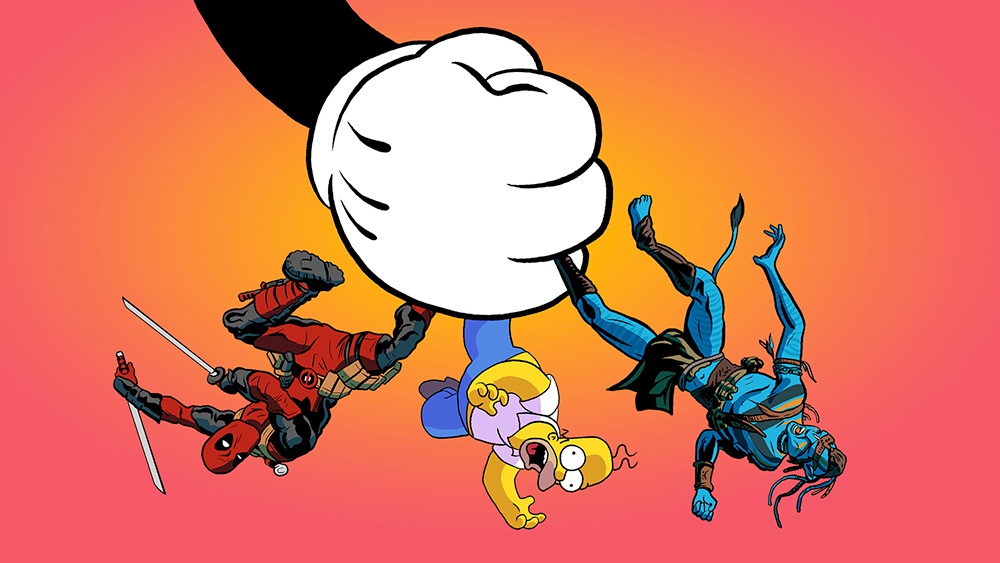At two minutes past midnight on Wednesday 21st March, Disney officially completed the acquisition of 21st Century Fox and its studios for $71.3 billion. Initially, Disney had offered $52 billion, but due to competition from COMCAST, the company that owns NBC and Sky, the price was driven up drastically. Rupert Murdoch’s remaining Fox properties; the Fox broadcast network, Fox News Channel and Fox sports, have been rebranded as the Fox News Corporation (FOXA). The merger has taken an age to complete, but for Disney it will of course prove to be a major acquisition going forward. The results on the film and entertainment industries will be huge, as two of Hollywood’s major studios have combined.
One of the most significant benefits the merger will bring to Disney is their expansion of content ahead of the release of Disney’s new streaming service, Disney+. This puts them in a position where Disney+ is ready to challenge other successful streaming services, most notably Netflix and Amazon Prime. The library of films at Disney’s disposal is now even bigger with franchises such as Alien, Predator and the highly lucrative Avatar which grossed $2.79 billion worldwide back in 2009 and is still yet to be exceeded by another property and has four sequels currently in development.
The merger will also unify some of the properties Disney already own. Prior to the deal, Fox had an exclusive deal with George Lucas entitling them to the exclusive distribution rights to the original Star Wars, now known as Star Wars Episode IV: A New Hope. This is the final piece of the Star Wars jigsaw, as these distribution rights were not included when Disney bought Lucasfilm from Lucas in 2012. This now means that they could re-release the initial film without the adjustments made to the later releases which irritated many fans, especially the alteration regarding the Han Solo and Greedo confrontation. The other big franchise boost is that Disney’s deal will reunite The Fantastic Four, X-Men and Deadpool with Marvel Studios (also owned by Disney). These are some of Marvel’s most famous comics, so the merger brings exciting possibilities as Marvel fans will await the introduction of The Fantastic Four and the X-Men into the MCU.
The deal also brings with it diversity and new possibilities for Disney. They have been consistent in enforcing their clean-cut, family-friendly image through all their properties; however, as previously mentioned, amongst some of the Fox properties they have inherited are the infamously violent and mature franchises of Alien and Predator. Then there’s the immensely popular Deadpool, and on-going TV shows such as Family Guy, The Simpsons and The X-Files. It would incredibly stupid to either cancel these franchises because of their violence or dumb them down, as part of their popularity stems from the R-rating. Disney’s best solution to keep these franchises going and maintaining their reputation would most likely involve keeping the Fox studios running and for them to continue producing such content. So it’s unlikely that we’ll be seeing Alien vs Predator vs Mickey Mouse. This way audiences keep their beloved franchises and Disney gets another opportunity to start chipping away at making back their $71.3 billion.
Of course, when two companies of this size are merged there will be a certain amount of jobs at risk. Fox departments and divisions that are similar to those that already exist within Disney will inevitably be cut down if not totally dissolved. Across all units there is expected to be around 4,000 layoffs as Disney aims to quickly and efficiently integrate and mobilise into the fast-moving industry, as well as make back their pledged $2 billion in ‘synergy savings’. This human cost is a very sad result of a merger that is one of the biggest in entertainment history, meaning the deal isn’t all sunshine and rainbows.
Disney appears to now have evolved from a giant of the film industry to a super-giant. Of course, industry dominance isn’t assured, there are still other major studios to compete with such as Sony and Universal. But with Fox moving under the Disney umbrella, does this mean that somewhere along the line Disney will be going after Sony and Universal as well? Of course, if they do move towards their other rivals it won’t be any time soon. Disney still has a task ahead of them in making back the $71.3 billion they’ve spent in this deal, but regardless, they are arguably now the biggest film empire the industry has ever seen.
By Matthew Moorey
Image courtesy of Variety

